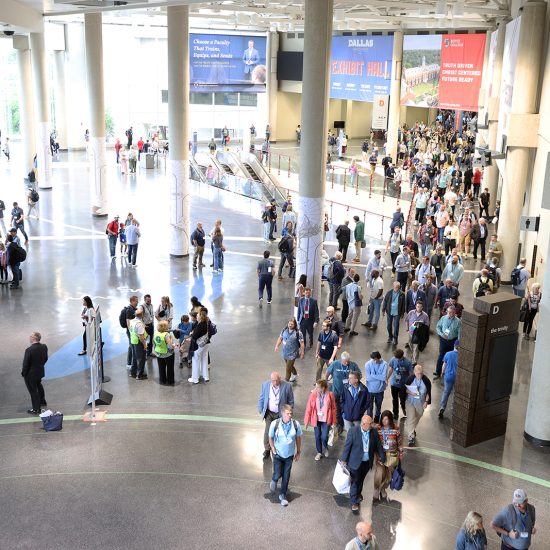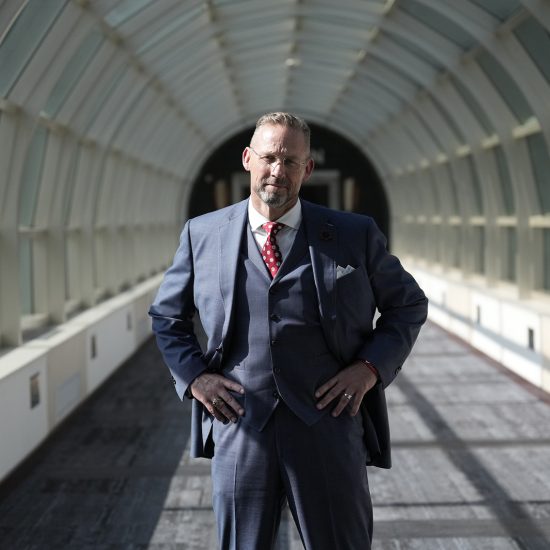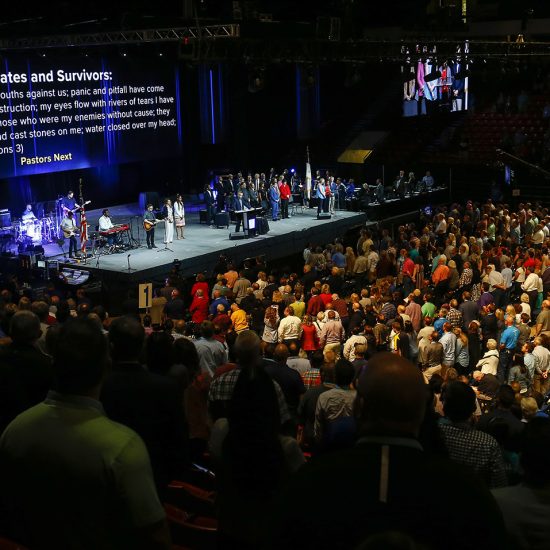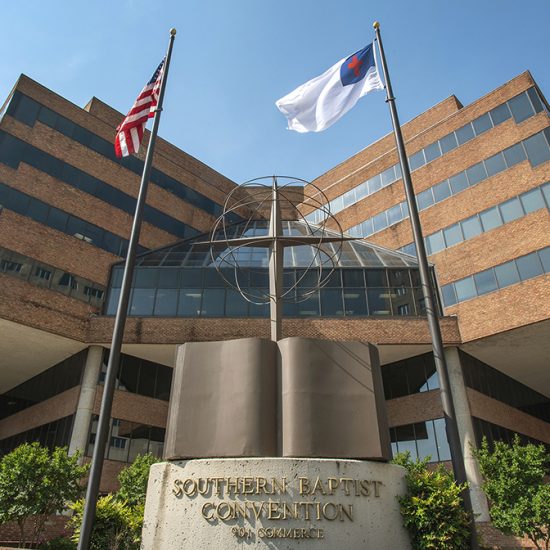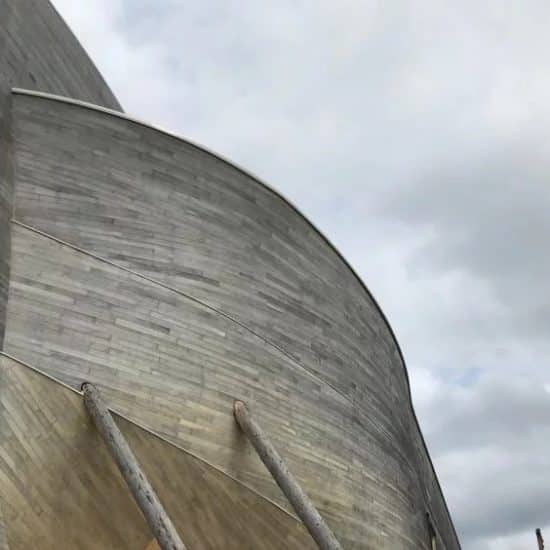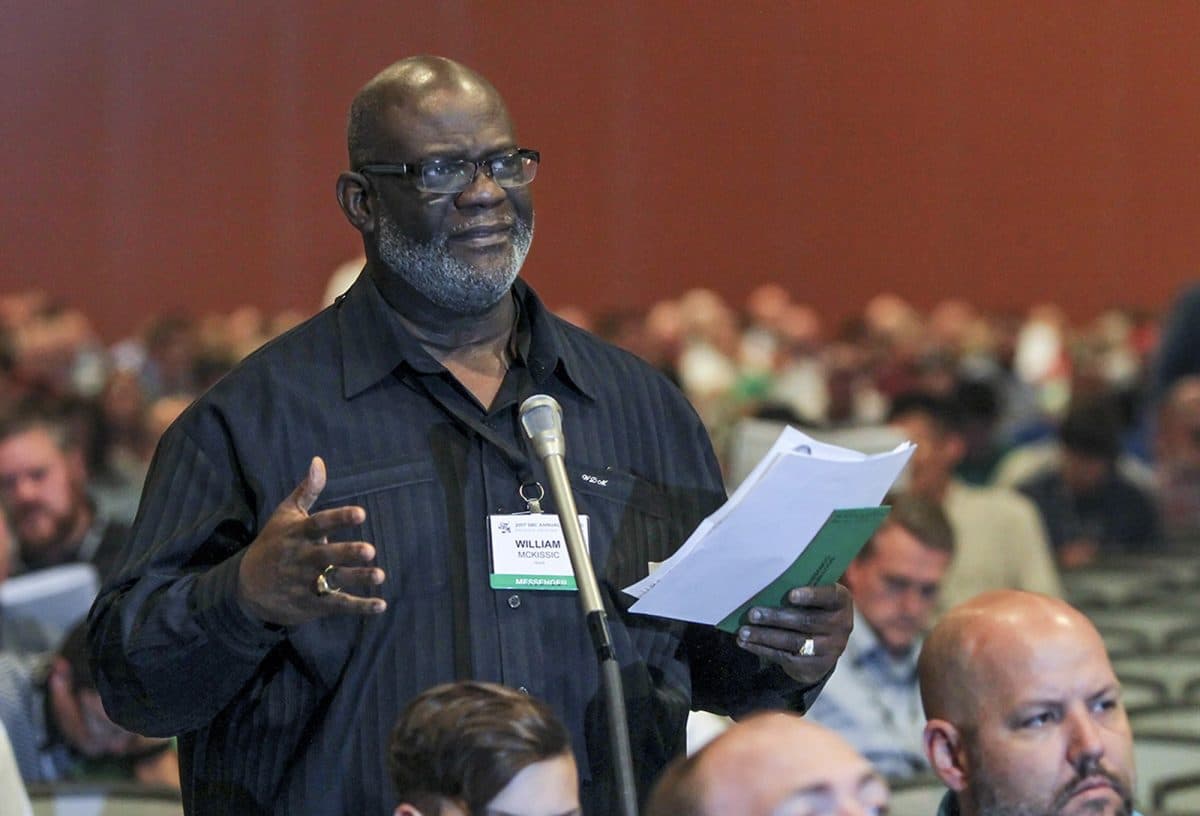
Dwight McKissic, a prominent Black Southern Baptist pastor in Texas, announced Friday (Jan. 15) that his church would make denominational changes in light of efforts by prominent Southern Baptists to condemn Critical Race Theory. His church is ending one of its state convention affiliations and may leave the Southern Baptist Convention later this year.
“We are getting off the bus,” McKissic wrote on his website about leaving the Southern Baptists of Texas Convention and perhaps also the SBC.
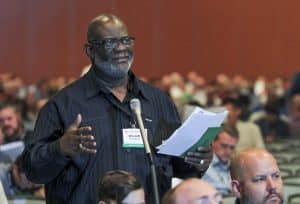
Dwight McKissic speaks about White Supremacy during the 2017 Southern Baptist Convention annual meeting. (Van Payne/Baptist Press)
McKissic, pastor of Cornerstone Baptist Church in Arlington, Texas, successfully pushed the SBC to pass a resolution in 2016 repudiating the Confederate flag. And the next year he successfully pushed another resolution condemning White Supremacy and the alt-right movement. Last year, he unsuccessfully urged Southern Baptist Theological Seminary in Louisville, Kentucky, to remove campus honors to its enslaver founders — but he praised the school’s move to create a scholarship fund for Black students.
As SBTS President Al Mohler led SBTS to keep the honors to its enslaver founders, Mohler also led the six Southern Baptist seminary presidents on Nov. 30 to condemn Critical Race Theory, a decades-old broad social science perspective that scholars use in analyzing issues of race, power, and society.
CRT scholars particularly explore the role White Supremacy inherently plays in American society, and urge efforts to deconstruct institutional racism. This approach demythologizes American history to note the impact of slavery and other racial injustices embedded in legal, political, and even religious structures.
The condemnation of CRT sparked controversy, especially as many people found it troubling that six Anglo men made the declaration without consulting with African Americans. Leaders of the SBC’s National African American Fellowship criticized the statement. And Black Southern Baptist pastors from Minnesota to Illinois to Kentucky to Texas and elsewhere said they were leaving the SBC after the anti-CRT move.
Shortly before the statement from the seminary presidents, the Southern Baptists of Texas Convention passed a resolution condemning CRT. The resolution denounced CRT as “secular” and “an unbiblical approach to the problem of sin that brings division among ethnic diversity and, as such, must be rejected.”
For McKissic, that statement meant it was time for his church to leave the SBTC.
“In November 2020, the SBTC adopted a strongly worded, anti-CRT policy that denounces all aspects of Critical Race Theory. There are certain aspects of CRT I also disagree with,” McKissic wrote Friday. “However, there are beneficial aspects of CRT that cannot be denied. And because the SBTC, and it appears the SBC, are poised to deny any beneficial aspects of CRT, in a most dishonest fashion, I have decided to get off the bus.”
He added that if the SBC at its annual meeting in June affirms the anti-CRT statement of the seminary presidents, his church will leave the SBC as well. The controversy around CRT in SBC life erupted after messengers at the 2019 meeting passed a resolution noting how CRT could be a useful analytical tool for Christians. The seminary presidents decided to reject the position of the messengers.
“The most respected and major opposition is coming from the Council of Seminary Presidents of the SBC. It is unprecedented for the CSP to take a defiant position to the resolution committee’s decision and the majority vote of the messengers,” McKissic wrote. “If the CSP/SBC policy is ratified in June, we are discontinuing our affiliation with the SBC.”
McKissic said his church is strengthening its relationship with the Baptist General Convention of Texas, an older SBC convention that isn’t as far to the right. And, he added, the church will strength its relationship with the National Baptist Convention USA, the largest Black Baptist convention in the country.
In his post Friday, McKissic explained his concerns with the anti-CRT move by the seminary presidents.
“The existing and proposed CSP/SBC policy empowers entity heads who happen to be all Anglo, to be in a final decision-making authority to determine the content of all literature that flows to our churches on the subject of CRT, and by extension, the subject of race,” McKissic wrote. “Given the SBC’s history on race, it is preposterous to ask African American churches to blindly trust their interpretations regarding CRT — and by extension, ‘race.’”
“We are not willing to sign-off on SBC seminaries and affiliated entities to be able to indoctrinate African American congregations and seminary students regarding CRT,” he added. “Why? (A) Because this policy was developed without consulting with at least one African American in its origination; and (B) this policy fails to acknowledge that there are beneficial aspects to CRT. To affirm this policy is to affirm a dishonest approach to CRT.”
Like the 2019 SBC resolution, McKissic does not affirm all aspects of CRT scholarship but also finds helpful insights from CRT work. Thus, he finds the attempt to ban CRT completely as problematic.
“A better solution is to treat CRT in the same way we treat a bruised apple,” McKissic wrote. “If you cut out the bruised part, no matter how large it may be, and you consume the rest. If the SBC would take a ‘bruised apple’ approach to this controversy, the division over CRT immediately halts.”

